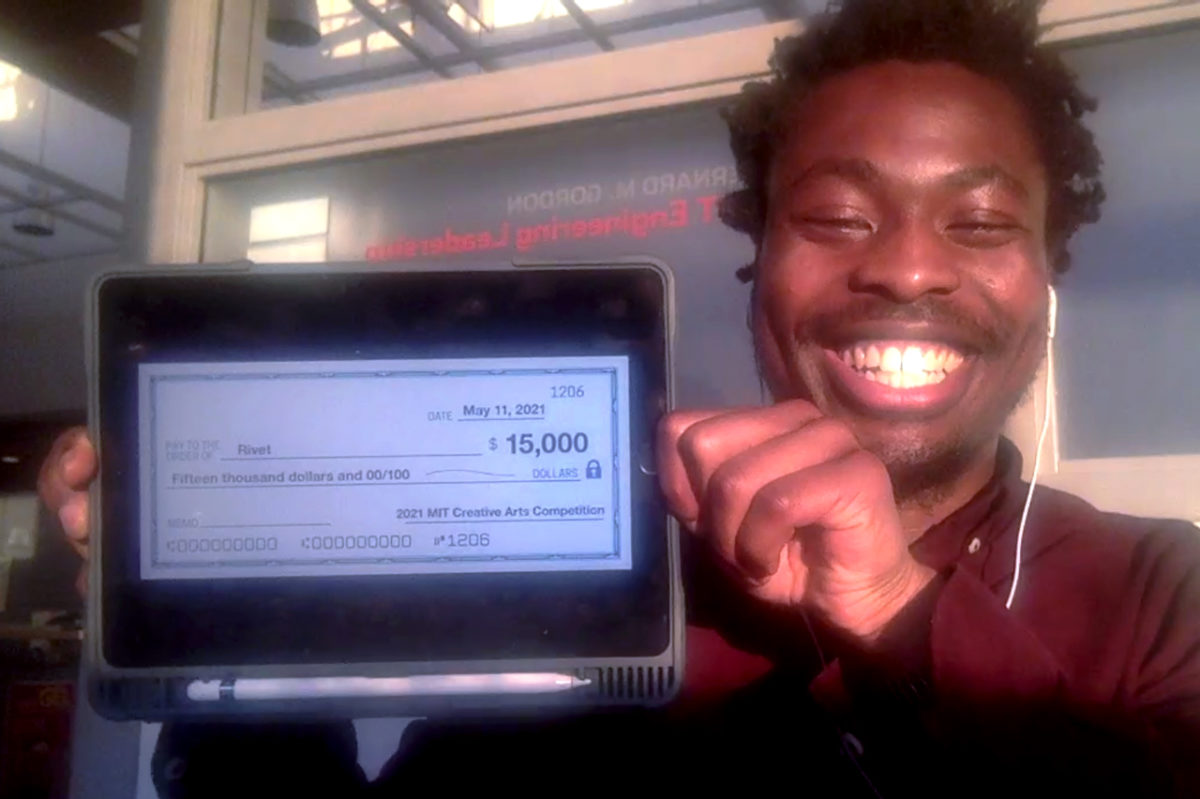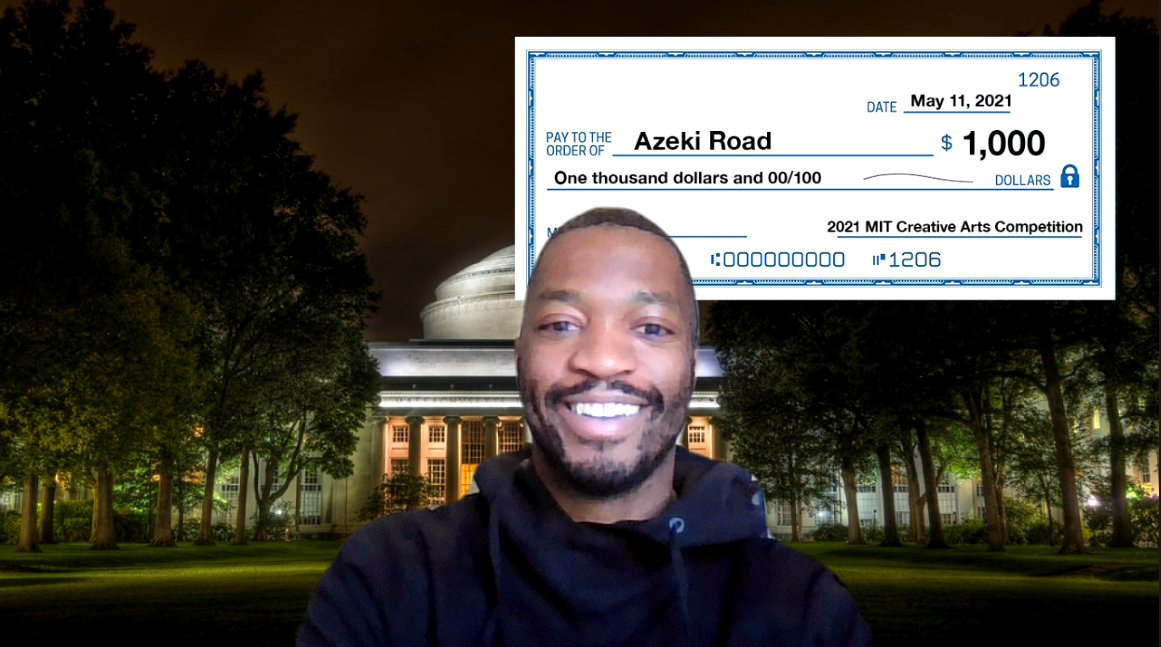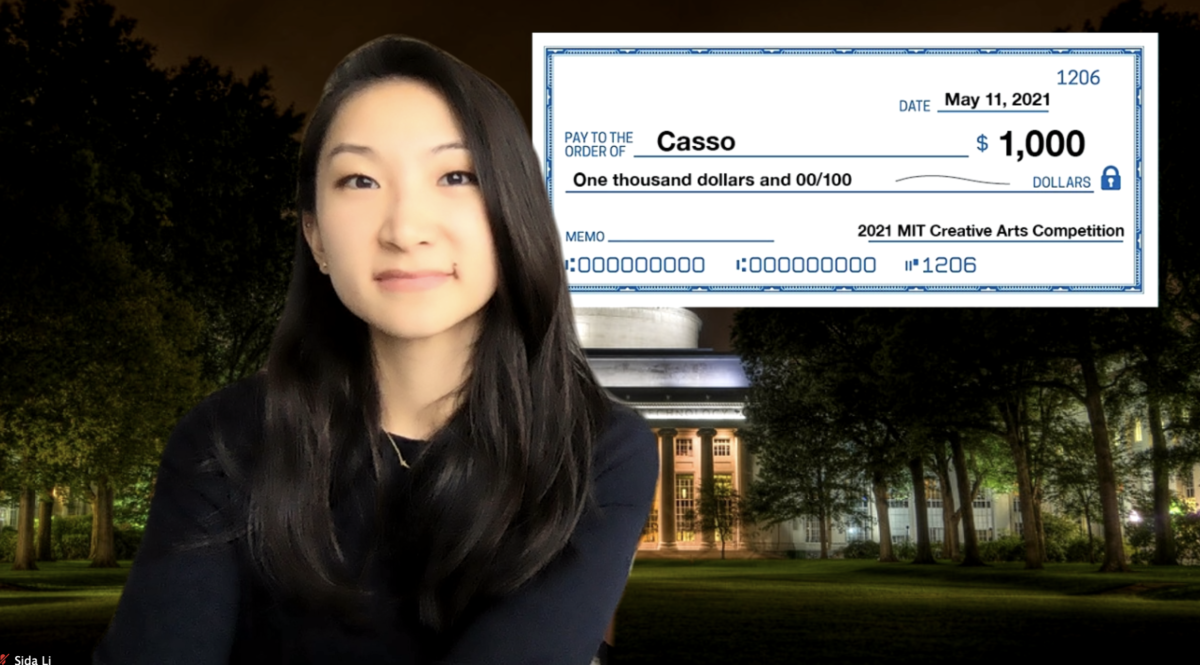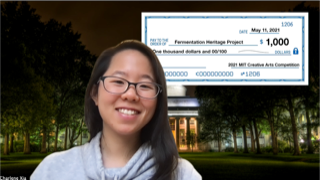There are myriad opportunities for aspiring entrepreneurs at MIT—dozens of incubators and accelerators designed to help shepherd the next big thing in robotics or biotech or quantum computing from blackboard to business.
Students wishing to launch a venture in the arts also have options, including the annual $15K Creative Arts Competition. Created in 2013, the competition invites student teams to submit and develop a sustainable plan for an arts-based company. More than 200 student teams have participated over the first nine years. Several viable companies have emerged.
“Ours is a little different from most competitions at MIT,” says Shannon Rose McAuliffe, manager of Student Arts Programs at MIT. “When MIT students show up for the arts, they are showing up by choice. As a result, there’s a lot of mutual support and collaboration among teams. People who sign up for this competition want to take this journey together. They’re all invested in each other’s success.”
And the Winner is…..
On May 11, 2021 after a final pitch session on Zoom, a team of five judges awarded the $15,000 first prize to Rivet, an online platform that enables musicians to interact directly with their most dedicated fans and to market their music directly to those fans.
The decision was a delightful surprise for Rivet. The team had presented a similar proposal at the 2020 edition of the $15K Creative Arts Competition and at other competitions and accelerators on campus. “I think we’d gotten used to losing,” says Rivet team member Anj Fayemi, ’20 Chemical Engineering. “We always enjoyed the experience, and we always learned a lot. When I heard them call our name tonight I didn’t believe my ears. I almost started to cry.”
Five groups presented proposals at the final session. Competition was keen but exceedingly friendly; teams supported and encouraged each other on chat throughout the event. The initiatives receiving a $1,000 prize included: Volar—a platform that empowers musicians in Latin America to monetize their work; Fermentation Heritage Project—an initiative and device designed to promote food fermentation in home kitchens and restaurants; Azeki Road—a technical support platform to provide African fashion brands direct access to consumers and markets; and Casso—an online marketplace that encourages and supplies people who want to learn to paint.
“This was probably the strongest group of pitches I’ve seen since I began judging this competition,” said Guilherme Marcondes, a New York City based filmmaker and creative director who has judged the $15K Creative Arts Competition since 2013. “It was a very hard decision for us. There were no weak teams or presentations. All of them were extremely sharp.”
A More Robust Program
The $15K Creative Arts Competition shares many elements with other on-campus competitions. Teams submit a proposal, meet with mentors, receive feedback, and present their final proposal to a panel of judges. But there are also differences.
“It can be more difficult to quantify the positive impact of an arts venture than the impact of a venture in other areas,” says McAuliffe. “Everyone understands we need to cure cancer or build more skillful robots. But not everyone understands that arts ventures can be equally important. One of the ways we add value here is helping our teams explain how art can matter. We make sure they can justify their ideas.”
For many contestants, learning to tell compelling stories also helped them shape their business and marketing plans. “Having to put our idea into words made us hone in on our value proposition,” said Ogbogu Ukuku IDM/Sloan of team Azeki Road. “By constantly refining our pitch, we learned to focus on what truly mattered to our target consumer.”
The $15K Creative Arts Competition is also unusually long, running throughout the academic year. Ten teams advanced through the applications phase into the next round. Of these, five were selected as finalists. All participants received extensive feedback and mentorship throughout the academic year. The competition kicked off in October with a mini-conference and keynote lecture. Contestants also met for a roundtable discussion with past competition winners. Teams participated in an ongoing series of workshops, seminars, and mentorship sessions through April as they refined their value propositions, drafted budgets, and further developed their business plans.
“We really beefed up the program this year,” says McAuliffe. “We wanted to provide more room for engagement, because we thought it necessary, and also because of COVID. We even created virtual breakout rooms where the teams could meet to bounce ideas off each other. It was a little more contrived than it was in the past when they’d meet up over burritos in the Wiesner Student Art Gallery. But it created a sense of community and helped them better articulate their ideas.”
Stories That Shape Ideas
The $15K Creative Arts Competition offers a dedicated space for students to focus on an area that is sometimes overshadowed at MIT. “In most of these competitions, certain types of companies tend to win,” says Theo Fields, a first year MBA student at Sloan who works with McAuliffe. “Proposals for large software plays, or robotics, or something in biomedicine. That can take up a lot of oxygen.”
Fields discovered the $15K Competition last Fall at a virtual info fair, and in September he was hired as a graduate student worker to help coordinate the competition. He’s enjoyed engaging with the student teams watching as their proposals evolve. And he believes the competition experience leaves students better prepared for any business challenge in any field. “Our goal is to help students build sustainable skills and sustainable ventures,” he says. “They go from a concept to validating that concept to pitching the concept to judges with experience and knowledge in that specific area. Whether you win or not, these are skills you’ll take with you.”
Written by Ken Shulman




